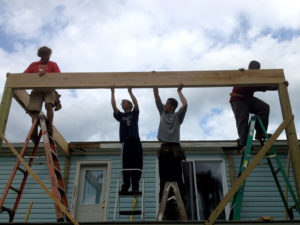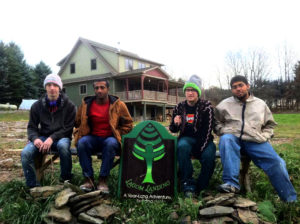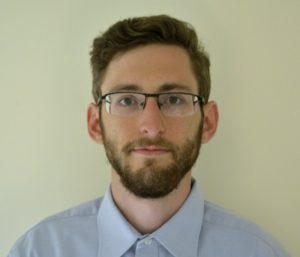Local gap year program offers high school graduates an opportunity to “land” before flying into adulthood
by Joshua Murphy –

Do you remember graduating high school? We recall most clearly those times that were emotionally poignant, regardless of the quality of those emotions. High school graduations are a day most remember, but this episodic memory that many of us share comes with different overtones. Personally, I graduated in 2010 with a sense of confusion, one that had been with me most of my schooled life and had come to a head as I posed for a picture wearing a cap and gown.
Looking back I have to imagine my train of thought moving along lines such as; “This is what it was all for? Thirteen years of rote memorization, age segregation, stunted curiosities, and standardized tests for this? Where do I go from here? What has this prepared me for?”
I was enrolled to begin at a local four-year university, and already dreading attendance. I thought maybe I wanted to be a reference librarian in the future, which I was told would demand a Master’s degree. Since I needed a bachelor’s degree before I could be a candidate for such a program, I enrolled in the school’s English department, where I could dig into my passion for literature… for four years. I would be taking on student debt to invest in a degree that I didn’t totally believe in, so I could pursue further overpriced credentialing for a career that I wasn’t sure I wanted, or would still exist by the time I would be a viable candidate.
This is not just my story; this is the story of our educational culture. 21st century graduates are experiencing this chronically, but the issue is not unique to our generation. Growing up my mother always spoke of her guidance counselor that misdirected her towards data processing studies, and how she regretted blindly following this instruction. We school adolescents through a system that denies critical personality development, and then encourage them to follow the job market rather than their inner voices. Our rites of passage have been stripped down to a gallery of future obedient employees demonstrating their ability to follow one another’s lead towards the next important piece of paper and a handshake.
High school students across the U.S. are actively working against this system today. Some are even protesting at graduations; a quick YouTube search of ‘rebellious high school graduation speech’ can clear up any doubt you may have of teens’ discontent. This year, one Valedictorian and class president in Pennsylvania was silenced during his speech when he began to critique the system that strips even student leaders of their fundamental agency.

For emerging adults who are not able to speak out through speeches, I hope they may be empowered to explore their newfound freedom by forging their own lives after high school. Sadly, many go on to accept some prescribed next step. For instance, I moved into my dorm room and stuck it out at college for a semester; it was one of the most difficult periods of my life. I was stuck in the doldrums, a sailing ship on windless waters.
In December I took a formal leave of absence from the school. I would go on to take two structured gap years, dive into studies in the social and natural sciences, and step into a number of volunteer, internship, and paid positions at home and abroad. All the while I was pursuing my passions and piecing my future together.
When I took my leave of absence I had critical support, but many naysayers too. Having internalized each of these voices, I could not tell which was right and which was wrong. Living into this question turned out to be the most important move of my young life.
As more students are looking for post-secondary education opportunities that facilitate personal growth, development, and discernment, various non-profit organizations are answering their calls. Most offerings do so with a lower price tag and more experiential curriculum than many college programs. One such organization is right in our back yard, and is very dear to my heart as an alumni and current board member and facilitator.
Lagom Landing, “a 9 month adventure in building your life,” is situated on 60-acres of Sparta hills. The program is structured around trades training in residential and furniture construction, providing students with both employable and self-reliance skills. Other programming happens on site and off as students and staff work to create a community that is rooted in honesty, reflection, compassion, and sustainability.
The property features a mandala garden, created and managed annually by the year’s cohort. Partners from major organizations such as Cornell Cooperative Extension, and Livingston County Workforce Development, alongside local entrepreneurs, provide learning opportunities in agriculture, food preservation, personal finances, mechanics, the arts, and countless other categories. These experiences and connections give students the chance to try on different hats, to learn more about themselves and the world, and to start making decisions that will allow them to pursue their ideals.
In the Spring, the final months of the program, students are given more autonomy over their schedules. They take on individual internships, employment, and credentialing opportunities both near and far. At the same time Lagom participants are making arrangements for their next phase in life—finding an apartment, applying to jobs and colleges, or setting up whatever they have decided is their next best step.
To be admitted to Lagom Landing, the main requirement is willingness. Are you willing to work to build your future? Are you willing to ask yourself difficult questions? To learn to live well with others? To accept the return of your rightful control over your own life?
My own year at Lagom Landing, and the rest of the time I spent between stints at SUNY colleges, was absolutely integral to my professional path. Through the connections, reflections, and lessons of these experiences I stepped confidently toward my future. I hope that by sharing my experience I can enlighten others on the merits of alternative post-secondary options, so that we may relieve our emerging adults from confusion and doldrums.
